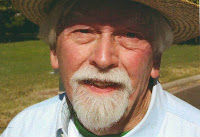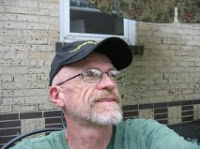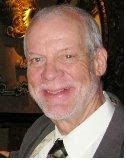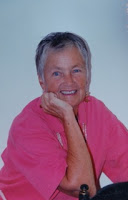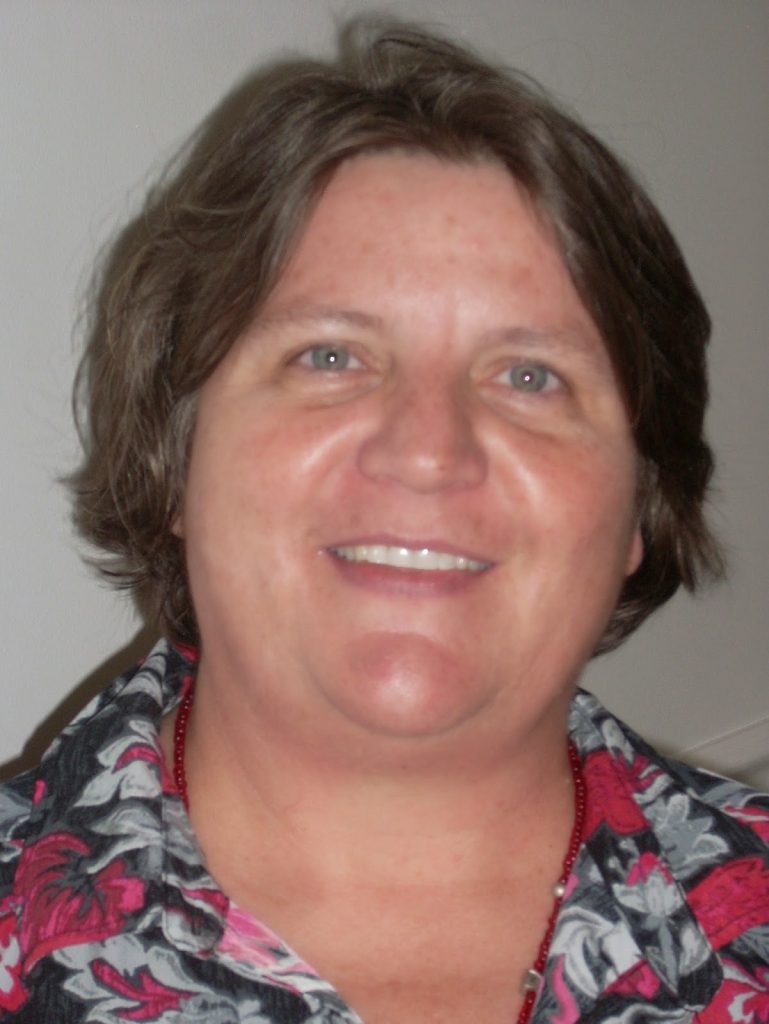It was in March 2002. The new Schlessman branch of Denver Public Library had just opened a few days earlier and I was excited to pay my first visit. So, obviously, were many other people scuttling eagerly in its direction. The day that library opened, it outgrew its parking lot, so we approached from neighboring streets.We had had several days and nights of that typical Springtime thawing-and-refreezing and there were unsuspected patches of almost invisible ice hiding in the shadows. Suddenly both feet shot out from beneath me and I landed hard on my back, my head making a sickening crack against the sidewalk. Ouch! (Though I suspect I thought words other than that!)
Gathering up what was left of my dignity I scrambled to my feet, making I’m OK gestures to nearby concerned citizens. Though once upright, I wasn’t so sure. I felt a bit woozy. Hoping not to repeat one slightly awkward moment after another, I hastily sat down on the low wall edging the library parking lot. What I am referring to as awkward might be embarrassing moments for some people, but I so exercised my right to be embarrassed in my youth that I grew out of it years ago and now rarely feel that anything goes beyond awkward. But awkward moments I can sometimes excel in. In fact they tend to, with me, very like buses; nothing for a long time and then several, one right after the other.
And sure enough, here came another one. Resting my head in my hands in an attempt to ensure my equilibrium, I noticed a tickling sensation on both hands. Half-opening my eyes, it was impossible NOT to notice the steady drip of blood falling onto the sidewalk. Shit! Gently I felt the back of my head, which did not cause me any great pain but my hand came away covered in blood. Shit! Was I right in thinking I could just walk back to the car and drive home? I felt that I could. I knew Betsy was not at home, she was in Birmingham on a family visit, so there was no point in going into the library to call – not to mention the slight problem of dripping blood all over their nice shiny brand new floor.
It dawned slowly upon me that quite a crowd was gathering; a lot of concerned faces were turned in my direction. This was before the days when absolutely everyone had a cellphone, but one cute young blonde thing was waving one around, vaguely in my direction. I tried to trawl through friends and family phone-numbers I knew by heart, but my slightly fuzzy brain was unable to offer much help. A young man with a little boy by the hand said, to me and the gathering crowd, that he thought I should go the hospital. The cutie with the cell phone nodded agreement.
‘May I call an ambulance?’ she asked, politely.
I was not sure. I wanted just to go home. But maybe, I wondered, watching the blood dripping ever-faster onto the cement, I was not really thinking too clearly.
‘Really,’ another voice offered, ‘You should go the hospital. You’re bleeding badly.’
Murmured agreement rose from the onlookers.
No shit, Sherlock, I thought, ungratefully.
I hesitated. I gave in. Shit! They were the ones thinking clearly, not me.
I had never been strapped onto an ambulance gurney before. Come to that, I had never been in an ambulance before. Another cute young thing patted my arm and talked soothingly of nothings as we sped through Denver, sirens wailing. I supposed it should have been at least a little exciting, but I felt rather a fraud. My head didn’t hurt very much, and felt much clearer than it had for a minute there. Wrapped securely in some delightfully soft something, it might have still been bleeding but at least was no longer dripping on everything. I gave a mental shrug.
What the hell?
Four hours later, a disgruntled young man perched on the edge of my bed in St. Jo’s E.R.
‘It really is nothing,’ he decreed, glaring at me for wasting his valuable time, of which he had spent all of perhaps one minute with me.
‘The nurse will be back, then you can go home.’
He made me feel as if I should apologize profusely for unnecessarily occupying this prize piece of real estate in the form of a bed in Emergency.
Almost another hour later, another cute young thing appeared. There were so many of them around that day, I was starting to wonder if the knock on my head was causing me to have hallucinations – if very pleasurable ones.
‘Better safe than sorry, Honey,’ she said, agreeably, reading my mind, as she unnecessarily helped me up off the bed.
‘Sure was a lot of blood but it’s no more than a bad graze. We can’t even put a dressing on it without shaving a real lot of hair off so best just leave it. It’ll heal in it’s own time,’ she concluded, comfortingly.
Now feeling nothing but a very slight throbbing in my head, and a worse stiffness from lying in a cold room for hours, I decided I would simply walk home and evade all the logistical complications of finding someone to come and pick me up. I could get a cab, but having seen the blood-covered back of my yellow jacket and the front of gray sweatshirt, I rather doubted one would agree to take me anywhere. Anyway, the day had warmed up considerably and a walk home in the late afternoon sun would be good for me. I would go through City Park, always pleasant. At that time we lived in Park Hill, and this of course was the old St. Jo’s, so it was probably, at the most, three miles.
I had gone as far as the path around the south side of City Park Lake, where I stopped for a minute to enjoy the cormorants, sitting about as they do with their wings spread out and held up as if drying their underarms. A young woman, pushing a stroller containing a small child, jogged past me. A few yards on, she stopped. She looked back at me, hesitatingly, then turned to walk back towards me. Yet another cute young thing. I should bang my head more often.
‘Umm …. excuse me …. er ….. I guess ….. you do know that your head is bleeding?’
Oh Lord. I had forgotten all about my blood-spattered clothes. I smiled reassuringly.
‘Sorry, I forgot about the blood on my jacket.’
I apologized, meanwhile pulling said jacket closed in front and hoping she had not noticed more dried blood on my shirt. Perhaps I did look rather like an escapee from somewhere.
She said nothing more but simply looked pointedly back in the direction we had both come.
A trail of blood spattered as far as I could see. Shit! Why hadn’t I grabbed a handful of tissues before leaving the hospital?
I explained the circumstances briefly to her and, still looking skeptical and requesting several assurances that I really would get home OK, she jogged off.
I arrived safely home after only one more encounter. An older man and woman in a shiny Lincoln passed me along Montview Boulevard, pulling over to park near the library which I assumed was their destination. But no, as I walked up beside their car they both got out, faces full of concern. This time I jumped in first: an apology, a brief explanation, an assurance that my house was now only a block away. No matter, they insisted, they would take me home.
‘I … might … um …. mess up your beautiful car …..’ I offered, looking through their eyes at my bloody clothes which by now were further stained with new blood over old.
Not only would they refuse all argument but insisted, upon arrival, in walking me to my door and seeing me safely inside, where I sank exhaustedly into an armchair the moment the door closed.
Shit! Nosy people had turned what should have, would have, been a perfectly pleasant, relaxed, walk, into a series of uninvited encounters. Shit! Why didn’t people just mind their own dam business? I sat grumpily in my chair. Gingerly fingering my head I realized it had stopped bleeding. I supposed it was the walking motion that had started it off, and kept it going. My irritation lifted and I found myself smiling. People were really so very nice, I thought. And even now, when I need to remind myself of that truth, I remember that day. I don’t relive the awkwardness of some moments, but rather the caring kindness of strangers.
© December 2016
About the Author
I was born and raised in England. After graduation from college there, I moved to the U.S. and, having discovered Colorado, never left. I have lived in the Denver-Boulder area since 1965, working for 30 years at IBM. I married, raised four stepchildren, then got divorced after finally, in my forties, accepting myself as a lesbian. I have been with my wonderful partner Betsy for thirty years. We have been married since 2013.
